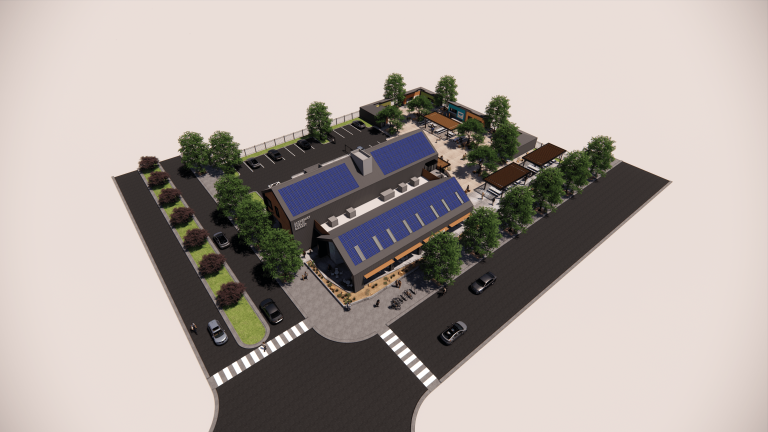Food resiliency hubs get boost from grant, community through interactive workshops
(Sacramento – Oct. 28, 2021) – Imagine a gathering place where community residents could go to buy healthy food and also learn sustainable growing and preparation practices that would allow them to become food entrepreneurs themselves. Nationwide, dozens of such “food resiliency hubs” have been developed from the ground up with the help of technical assistance grants jointly administered by the U.S. Environmental Protection Agency (USEPA) and the U.S. Department of Agriculture (USDA).
The Local Food Local Places or LFLP program is currently providing technical assistance to three hubs proposed for Sacramento:
Alchemist Public Market, an incubator and training center for new food businesses that also doubles as a market and restaurant
The International Garden of Many Colors, a subsistence farm in north Sacramento where families of primarily refugee populations grow their own food
Planting Justice’s reimaging of the long-abandoned City Tree Nursery in Mangan Park, which will transform the site into a teaching farm that will train and employ formerly incarcerated individuals.
The Local Food Local Places team of federal advisors led workshops that took place from October 12 to October 14. In nearly 15 hours of workshops hosted by Mayor Darrel Steinberg’s office, a broad array of community members and organizations weighed in on the three local projects, offering advice on immediate next steps as well as how the city could better support food hubs. For the opening and closing workshops, more than 50 participants joined the Zoom and offered important perspectives on the three LFLP projects as well as critical feedback on potential food policy initiatives for the City of Sacramento.
“I truly believe that food access, food justice and a sustainable food system are essential to our health as a community and as city,” said Mayor Darrell Steinberg. “Local Food Local Places is helping Sacramento support projects that will enhance food access and fight for food justice.”
City staff from several departments and representatives from the Sacramento Area Council of Governments, Valley Vision and U.C. Davis among many others were also present in the various interactive workshops. The federal agency team of experts in agricultural policy, environmental policy, public health, and regional economic development worked directly with the community to identify key strategies that will help the three featured projects come to life. The federal assistance is also designed to help City staff better prepare for and support similar projects in the future.
Karl Hacker, a transportation and marketing expert on the technical assistance team from USDA, called the Sacramento event “one of the most impressive of LFLP meetings that I’ve had the pleasure of being a part of. From the number of attendees, to the level of discussion and energy in the room, representation from all facets of the industry and community was quite impressive.”
The technical assistance team is now compiling and organizing the input from the participants that will produce several concrete actions the projects can take as well as identify some best practices for the City of Sacramento going forward. The workshops also served as an important segue for the recently convened Food Justice Task Force, which will be holding its first meeting in November. In the next few months, the technical assistance team will reconvene the participants to refine the action plan.
"The workshops were an important opportunity to come together on shared food access and resiliency goals, while focusing on actionable steps to move some key projects forward,” said Jennifer Venema, Climate Action Lead for the City of Sacramento. “We have strong partners and local efforts, and this helped us frame the context while working through big policy issues as we prepare the public draft of the 2040 General Plan."





